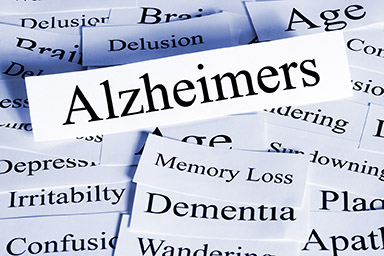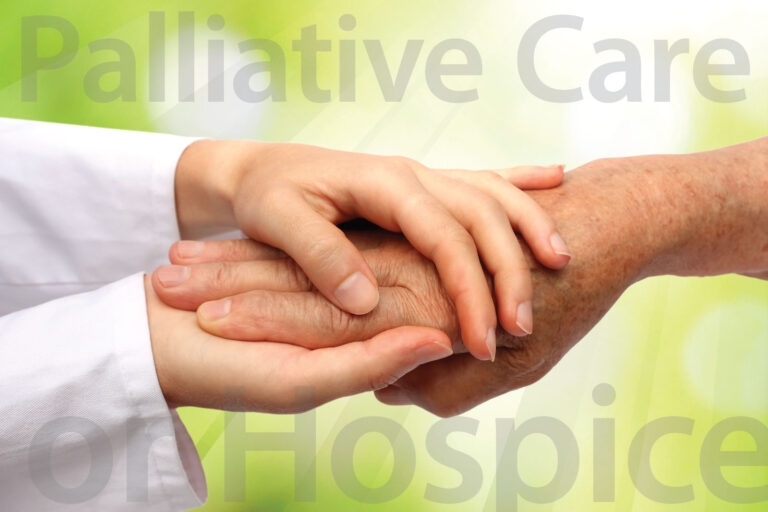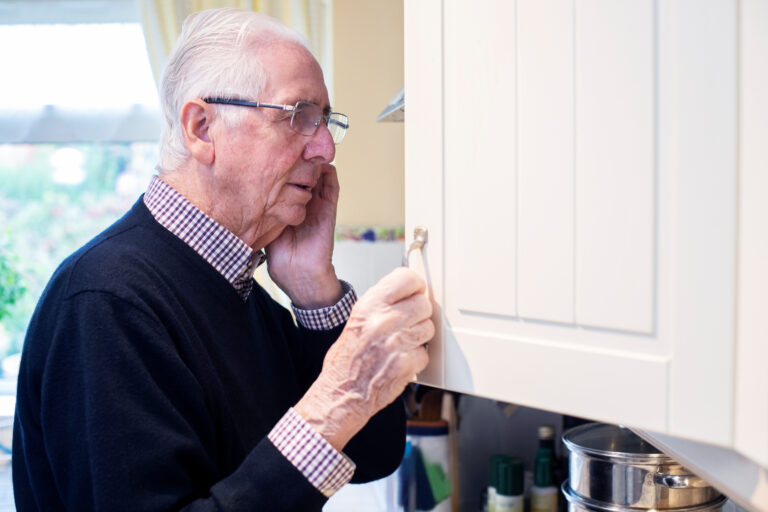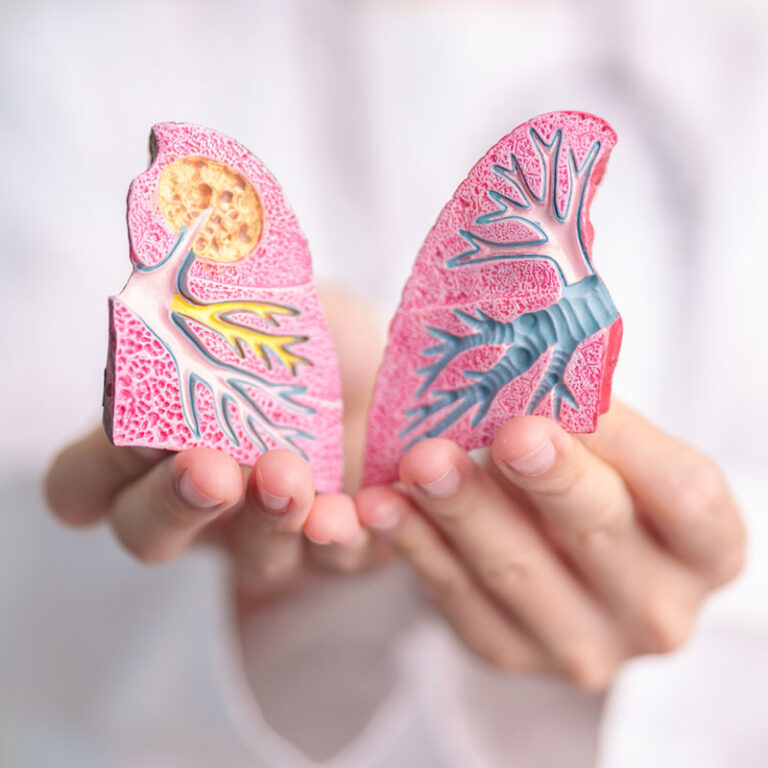Heart disease is the leading cause of death in the United States. If someone you love receives a cardiovascular disease diagnosis, it can become a source of deep anxiety. Yet many people manage their heart symptoms through regular medications and a healthy lifestyle.
However, some cardiac events like stroke and heart failure can have severe effects on your loved one’s ability to continue with their routine, speak, and maintain focus throughout their day. Should your loved one choose to receive home heart disease care, a significant amount of change and responsibility will affect everyone around them.
When looking after someone who’s had a stroke or lives with heart failure, the emotional, physical, and practical demands on caregivers can be brutal. Everyone is ready to make sacrifices for the ones they love, but those sacrifices can have a profound impact on day-to-day life.
Many caregivers prioritize caring for their family over their own well-being and burn out quickly as a result. Research on older adults caring for heart disease patients shows that the associated stress may increase their own risk of heart disease.
Looking after yourself is vital when you’re looking after loved ones. Here’s how to recognize heart disease, care for a loved one if they have a cardiovascular problem, and safeguard your own health in the process.
How To Spot Heart Disease Symptoms
The first signs of heart disease (or heart disease risk) will usually become clear during a routine checkup, but the symptoms may not be obvious at first. Instead, certain health conditions or lifestyle choices can contribute to heart disease risk, including:
- High blood pressure
- Imbalanced blood cholesterol
- Diabetes
- Obesity
- Smoking
Your loved one’s doctor may prescribe medications to manage these factors as a preventative measure. The term “heart disease” includes different conditions, and the symptoms may become noticeable to you or your family member in different ways. One of the most worrisome aspects of heart disease is that it often doesn’t cause symptoms at all.
Some warning signs of heart disease include:
Arrhythmia. Your loved one might feel a fluttering sensation in their chest.
Heart failure. The heart is still working, but it’s not transporting blood around the body as it should. In its most severe stages, heart disease care may become necessary, because heart failure can lead to:
- High blood pressure
- Imbalanced blood cholesterol
- Diabetes
- Obesity
- Smoking
People can live full lives with heart failure, but if the condition worsens, these symptoms can impair daily living. If this happens to your loved one, you may have to quickly adapt your life to care for them. Read on for more tips on caring for heart disease when a loved one is affected.
Are you or a loved one living with a chronic or terminal illness?
The Sage Family of Companies is here to help.
Are you or a loved one living with achronic or terminal illness?
The Sage Family of Companies is here to help.
How to Identify a Heart Emergency
Whether they happen suddenly or as the result of a chronic cardiovascular condition like coronary artery disease or congestive heart failure, heart attacks and strokes require immediate emergency treatment.
Heart attack symptoms include:
- High blood pressure
- Imbalanced blood cholesterol
- Diabetes
- Obesity
- Smoking
Identifying if your loved one has had a stroke involves looking out for the “F.A.S.T” warning signs:
- Face drooping. Your family member’s face may droop on one side or become numb, or they may smile unevenly.
- Arm weakness in a single arm. Ask your loved one to lift both arms. Does one start to drift down again?
- Speaking difficulties. Speech may become slurred or distorted.
- Time to call 9-1-1. Contacting emergency services should be your next step after noticing these symptoms.
These aren’t the only symptoms of a stroke that could signal the start of a heart disease care journey. You may also notice:
- Confused speech or an inability to understand what others are saying.
- Numbness of an arm, leg, or the face, usually on a single side of the body
- Sudden vision problems in one eye or both.
- Walking difficulties.
- A sudden, extreme headache that isn’t connected to another cause.
Prompt emergency attention can save your loved one’s life, so it’s important to pay attention to these symptoms and respond quickly. Even after life-preserving stroke treatment, quality of life may be severely impaired, and caregiving may become a daily reality for you and your family.
A stroke’s impact might include:
- Paralysis on one side of the body.
- Slow, cautious behaviors.
- Memory difficulties.
- Depending on the side of the brain affected by the stroke, your loved one may find it difficult to speak and process language (left brain) or vision (right brain).

Ways to Help Someone with Heart Disease
Caring for heart disease in a loved one can be a source of ongoing anxiety, even if they can still go about their daily life unassisted. Heart disease care starts with prevention, so try the following to reduce your loved one’s risk of a severe cardiac event.
Dealing With Heart Disease At Home
If your family member has some of the risk factors for heart disease, it’s important that they follow a heart-healthy lifestyle.
- Prepare heart-healthy meals with more fruits, vegetables, and whole grains, as well as low-fat meat and dairy. Your loved one should also cut down on salt, saturated fat, and added sugar.
- Encourage them to enjoy at least 150 minutes of moderate-to-vigorous-intensity aerobic exercise per week. The best way to support them is by joining in to make it a fun family activity.
- Talk to them about quitting smoking. This won’t be easy, but it’s essential and offers the best chance of a long, healthy life.
- Help your loved one stick to their prescription. Their physician may instruct them to take medications for high cholesterol, high blood pressure, or diabetes, as well as other conditions that can create the need for heart disease care. You can save their medication schedule on your phone and regularly touch base to keep them on track.
- Make sure they consume less added sugar. This includes sugary soda and alcohol. Your loved one should avoid more than one alcoholic drink per day if they’re female or two per day if they’re male.
- Buy a home blood-pressure monitor. Heart disease is known as a “silent” health concern, meaning that its symptoms might only become obvious once the disease has become severe. Monitoring blood pressure is one way to check that your blood is circulating as it should.
You can help by accompanying your loved one to regular checkups and making sure their physician monitors their heart health. Caring for heart disease shouldn’t wait until severe stages. It’s important to deal with heart disease early on, by encouraging heart-healthy living.
Heart Disease Home Care Following a Stroke
Strokes are life-changing events that can severely impair daily life, including aspects like speech, movement, and memory. While stroke victims can rehabilitate through speech therapy and physical therapy, recover is a slow, grinding process. If your loved one has home care, you’ll shoulder a heavy burden to help them through it.
After-stroke heart disease care at home often involves:
- Running errands, like buying groceries, filling out forms, and handling phone calls for them. You may also need to arrange power of attorney to handle financial and legal matters.
- Reading out loud to them, or helping them write letters.
- Helping them communicate with others.
- Being there for them emotionally, regularly calling to chat (if it’s comfortable for them), and providing company, as the sudden loss of function can be a source of extreme anxiety.
- Keeping lists of what they need, especially when it comes to medications.
With rehabilitation, your loved one can reconnect with independent living after a stroke. But recovery requires time, patience, and dedication. Caring for heart disease in a family member takes a lot of work.
Home Heart Disease Care Following Heart Failure
If your loved one has been diagnosed with heart failure, their doctor may have given their condition a severity classification from 1 to 4. Patients with class 1 heart failure may not notice any restrictions to day-to-day life. Those with class 2, 3, or 4 heart failure diagnoses will often need heart disease care. These patients may struggle to breathe during normal activities or feel excessively tired. They may also experience regular palpitations.
Your loved one with severe heart disease will need practical assistance with daily tasks, as their fatigue may be severe. Breathlessness can get in the way of independent function. They may need help with food prep, bathing, and daily chores.
Heart failure often occurs along with diabetes, kidney failure, and chronic lung problems. In this case, you may need to regularly transport and accompany your loved one to hospital appointments, take notes during consultations, and ensure they’re taking medications as instructed.
Home Safety During Heart Disease Care
If you’re caring for heart disease in a family member, you can make small changes to your home to enable a smooth transition back to independent living.
With reduced mobility, falls are likely, so your loved one needs to rehabilitate in a stable, hazard-free environment. Some stroke patients might use a wheelchair to get around, so the layout of your home should allow free movement from room to room.
Necessary home safety adjustments during heart disease care might include:
- Replacing high-pile carpet with low-pile carpet or laminate flooring. Power-wheelchair users can damage or stretch carpets while turning.
- Make sure passageways between furniture, hallways, and doorways are wide enough to allow easy turning. Each door should freely open to a 90-degree angle. You may also want to reverse the hinges or install swing hinges so the direction of opening isn’t a barrier to access.
- Raise grip thresholds so your loved one can support themselves around the home. For example, install rails on either side of the stairway for support.
With rehabilitation, your loved one can reconnect with independent living after a stroke. But recovery requires time, patience, and dedication. Caring for heart disease in a family member takes a lot of work.
Communicating With Someone You Love Who Has Heart Disease
When communicating with someone who has heart failure, focus on providing emotional support — a pillar of caring for heart disease survivors. Heart failure can cause depression, anxiety, or anger from the risk of a sudden heart attack at any moment, and you’ll also need to discuss topics like end-of-life care that are everyone’s worst nightmare. Your approach should be calm, open, and patient.
Here are some tips to communicate with a loved one who has heart disease:
- Heart failure can be a source of extreme anxiety. Anxiety can cause breathlessness in those with heart failure. So, let your loved one talk openly about their fears and symptoms during heart disease care. Connect them with support groups and engage them in familiar activities they love.
- Your loved one deserves a say in their eventual end-of-life care. That requires having difficult conversations about their treatment options and their preferred course of action. Make sure they’re informed at every turn and help them understand their illness and its care.
- Talk through your loved one’s decisions with them. There will come a time when they may wish to stop taking medication or issue a do-not-resuscitate (DNR) order for their next heart complication. Even though they may choose to take these steps, the decisions are still highly distressing. Be patient, try not to let your feelings cloud their wishes, and let them vent their pain.
Especially after a stroke, your loved one’s speech might be severely impaired. Rehabilitation often involves speech therapy, but the journey may be slow. Here are the best ways to communicate while caring for a stroke survivor:
- Remember to be patient, as the challenges presented by a stroke can be frustrating and distressing.
- Speak at your normal volume with the assumption that your loved one understands what you’re saying, but allow extra time for their responses.
- Keep questions and commands simple.
- Turn the TV and radio off, as they can be distracting.
- Pictures, gestures, or nonverbal cues can help a stroke survivor understand you better.
- Speak facing them so they can see and interpret your facial expressions.
Are you or a loved one living with a chronic or terminal illness?
The Sage Family of Companies is here to help.
Are you or a loved one living with achronic or terminal illness?
The Sage Family of Companies is here to help.
Support for Caretakers of Heart Disease: How to Deal with Heart Disease as a Family Member
Caring for heart disease patients in your family can have an impact that reshapes your entire life. Communication is slow and recovery takes a long time. The emotional impact of stroke, heart failure, and other chronic or life-threatening heart conditions isn’t limited to your loved one.
It can be easy to forget about your own needs while closely tending to the needs of others. But caregiver burnout can feel all-consuming. During heart disease care, your loved one’s life may be in your hands. Looking after yourself is essential for their survival and mental health, and for yours.
Here’s how to avoid caregiver burnout:
- Make time for yourself. Take regular breaks, do short workouts, and engage with the hobbies that make you feel good. Self-care isn’t selfish. It’s vital for maintaining your health.
- Don’t keep feelings pent up. Talk to anyone you feel comfortable with. You may choose to share with friends, other family members, mental health practitioners, or community leaders.
- Eat a healthy diet and be careful to get enough sleep.
- Join a heart failure or stroke caregiver support group.
- Ask your loved one if they’d be comfortable with friends and family helping you.
- Check-in with your loved one’s medical team for support. Caring for heart disease doesn’t need to be a solo activity, and speaking to professionals can provide much-needed perspective and clarity.
Outside Support
Your loved one may become too tired, emotionally charged, or physically impaired to connect with normal life. When this happens, it can feel like you’re breaking under the strain of a solo effort. But caring doesn’t need to be this way.
Professionals can provide heart disease caregiver support while you attend to your own needs, personal engagements, and errands. They can also provide relief while you relax, which is equally important for staving off caregiver burnout. Respite care can lift your burden and help your loved one live in greater comfort.
How Home Support Can Help Heart Disease Caregivers
Respite care professionals can:
- Help with chores, meal prep, and light housework.
- Support your loved one with daily essentials, including bathing and dressing.
- Provide socialization and company.
- Ensure comfort and maintain a medication schedule.
How Home Support Can Help Heart Disease Caregivers
Respite care professionals can:
- Help with chores, meal prep, and light housework.
- Support your loved one with daily essentials, including bathing and dressing.
- Provide socialization and company.
- Ensure comfort and maintain a medication schedule.
Many family members will take these tasks on themselves to support their loved ones. However, be aware that a professional care team can adopt them too, for as long as you may need them to. Caring for heart disease in a loved one can be time-consuming, and help can significantly improve the outcome. After a severe stroke, advanced heart failure, or major heart surgery, your family member may need 24-hour care, or only a few hours of care per day.
Arranging flexible home respite care can open the door to those precious moments of peace during a difficult time. This can have an especially significant effect when a heart disease survivor needs constant monitoring and bedside care, letting you breathe easier.
Palliative And Hospice Care for Heart Disease
Heart failure symptoms may become more severe, and independent living may move further out of reach following a stroke. When this happens, you may struggle to find the best way to help your loved one feel as comfortable and dignified as possible during their final days. The end is hard to think about and tougher still to discuss. Yet at-home or in-hospital palliative and hospice heart disease care can help your family member manage the pain and, when the time comes, pass peacefully.
Palliative Care
Palliative care is a helpful option at any stage of heart failure, or even for stroke patients just starting with rehabilitation. A palliative care team consists of physicians, nurses, and social workers who can reduce pain and address mental health concerns during a period of isolation.
The specialist teams at Sage Palliative Care Services have extensive experience caring for heart disease patients. These professionals administer flexible, patient-focused palliative care that can ease the burden on caregivers and help restore quality of life for loved ones.
Hospice Care
After an emergency cardiac event or ongoing heart failure, you may face the deep, sorrowful realization that your loved one will soon confront the end of their life. But neither of you has to go through this difficult time alone.
Hospice care can be a source of dignity, high quality of life, and even relative tranquility, as a team of doctors, nurses, massage therapists, and grief counselors tend to your loved one’s emotional needs. Sage can even supply a spiritual adviser to ensure that your loved one’s spiritual wishes are honored.
Sage Hospice Care takes pride in providing dignity and support during the most trying time in a person’s life. Whether in a specialized facility or at home, the Sage Hospice Care team can provide heart disease care for those you love, so you can focus on how they’ll be remembered and on what comes next.
Heart Disease Care: The Bottom Line
Heart disease can feel drawn out and sudden at the same time. This condition is actually a group of diseases that cause anxiety and are worsened by it. As a caregiver, you’ll see the worst sides of the disease. Many caregivers like yourself risk their quality of life to preserve their loved one’s dignity and comfort.
Asking for help is not a sign of weakness. You can keep yourself strong by reaching out to respite care professionals to lighten the load. True strength means doing what’s best for your family, not doing it alone.
The final chapter is heartbreaking, but it’s a team effort. We’ll get through it together.
The Sage Family of Companies is here to answer any questions you may have.
Article Resources
- 7 strategies to live a heart-healthy lifestyle. (2022)
- Caring for a stroke survivor. (n.d.)
- Caring for someone with heart disease. (n.d.)
- Caring for someone with heart failure towards the end of life. (2022)
- Effects of stroke. (n.d.)
- Heart failure signs and symptoms. (n.d.)
- Interacting with stroke survivors. (n.d.)
- Leading causes of death. (2020)
- Make your home work for you. (2018)
- Mausbach, B.T., et al. (2010). Association between chronic caregiving stress and impaired endothelial function in the elderly.
- Stroke symptoms. (n.d.)
- Warning signs of a heart attack. (n.d.)
- What is heart disease? (2022)






